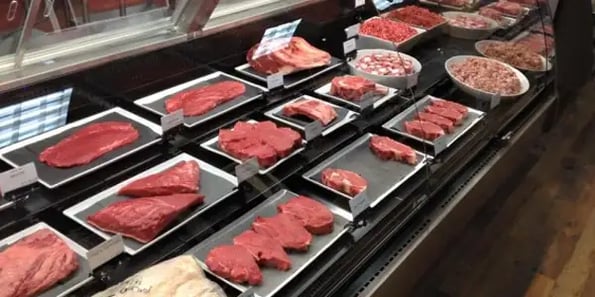Last week, the ag firm Farm Animal Investment Risk and Return (FAIRR) put out a report suggesting states institute a “sin tax” on meat to combat the worsening environmental impact of livestock.

What’s a sin tax, again?
In short, they’re state-sponsored taxes that are levied on goods or services that are deemed to be “sinful” — AKA, vices like tobacco, alcohol, or gambling.
Sin taxes are usually only tacked on to industries that “create negative externalities with their business practices.” These extra fees raise mountains of money for states looking to fill a budget gap, and, in theory, prevent people from using said goods or services on a wider scale.
So why’s meat on the chopping block?
As climate change becomes an increasingly central issue, livestock has come under scrutiny for producing 14.5% of the Earth’s greenhouse-gas emissions. And, considering that meat consumption is projected to be up 73% in the next 30 years, emissions are only bound to rise.
Meanwhile, the World Health Organization has also published studies that link the consumption of processed meats with certain types of cancer.
Is FAIRR’s proposal realistic?
As the fake meat market grows (Beyond Meat, Impossible Foods, Hampton Creek, and the ilk), a sin tax on real meat — which requires more resources to produce and is more harmful to the environment — doesn’t seem so farfetched.
But the move wouldn’t come without a cost: meat producers argue that sin taxes would run up the price of food across the board and endanger the jobs of ranchers.
